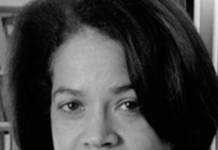Historically the wealth gap between black and white families has been huge. Typically, over the past generation white families have had wealth that was 10 times that of black families.
The wealth gap has tremendous consequences in the ability of African Americans to afford higher education. Components of family wealth, such as stocks, bonds, money in the bank, and real estate, produce interest, dividends, or rental income that are commonly used to offset or pay college costs. Wealth also includes the value of a family’s home. This important asset can be sold or borrowed against to provide funds for college expenses.
 A new report by scholars at the Institute on Assets and Social Policy at Brandeis University in Waltham, Massachusetts, finds racial differences in home ownership are the most important factor in the large and growing wealth gap between Blacks and Whites. The report found that in 2009 the median net worth of White households was $265,000. For Black households, the median net worth was $28,500. The report found that in real dollar terms, the median wealth gap between Blacks and Whites grew from $85,000 in 1984 to $236,500 today.
A new report by scholars at the Institute on Assets and Social Policy at Brandeis University in Waltham, Massachusetts, finds racial differences in home ownership are the most important factor in the large and growing wealth gap between Blacks and Whites. The report found that in 2009 the median net worth of White households was $265,000. For Black households, the median net worth was $28,500. The report found that in real dollar terms, the median wealth gap between Blacks and Whites grew from $85,000 in 1984 to $236,500 today.
The study, The Roots of the Widening Racial Wealth Gap: Explaining the Black-White Economic Divide, may be downloaded by clicking here.












